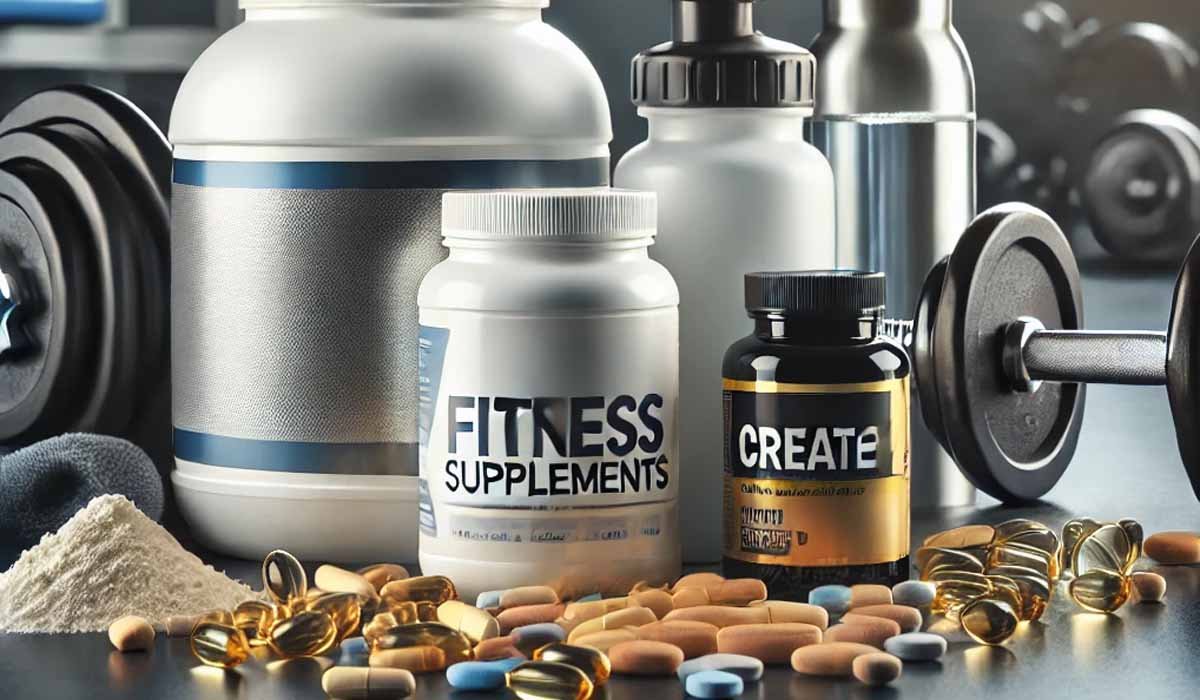Supplements have become a staple in the fitness world, offering promises of increased muscle growth, faster recovery, and better overall performance. But with so many options available, it’s easy to get overwhelmed. Not all supplements are created equal, and some may not provide the results you expect. This guide will break down what supplements are worth taking and which ones you can skip, ensuring you make informed choices to support your fitness goals.
What Are Supplements?
Supplements are products taken orally, usually in the form of pills, powders, or liquids, that are designed to add nutrients to your diet or enhance certain aspects of your health and performance. While they can help fill nutritional gaps, supplements should never replace a well-balanced diet.
Worth Taking: Protein Powder
Protein is essential for muscle repair and growth, and it can be challenging to get enough of it through food alone, especially for those on restrictive diets or with busy schedules. This is where protein powder can come in handy. Common types include whey, casein, and plant-based options like pea or soy protein.
Why it’s worth it:
Protein powders are a convenient way to increase your daily protein intake, helping with muscle recovery and growth post-workout. They are especially useful after intense resistance training.
Tip: Choose a protein powder with minimal added sugars and artificial ingredients for the best results.
Worth Taking: Creatine
Creatine is one of the most well-researched supplements in the fitness industry. It’s a naturally occurring compound that helps your muscles produce energy during high-intensity workouts.
Why it’s worth it:
Creatine has been shown to increase strength, muscle mass, and exercise performance, making it a top choice for those looking to boost their results in the gym.
Tip: Stick to creatine monohydrate, the most studied and effective form of creatine, and take about 5 grams per day.
Worth Taking: Omega-3 Fatty Acids
Omega-3 fatty acids, commonly found in fish oil supplements, offer numerous health benefits, including reducing inflammation, improving heart health, and supporting brain function.
Why it’s worth it:
For fitness enthusiasts, omega-3s help reduce exercise-induced inflammation, aiding in quicker recovery and better overall performance.
Tip: If you don’t eat fatty fish like salmon regularly, a high-quality fish oil supplement can help meet your omega-3 needs.
Worth Taking: Vitamin D
Vitamin D plays a crucial role in bone health, immune function, and muscle strength. Many people, especially those who live in areas with limited sunlight, are deficient in this vitamin.
Why it’s worth it:
A deficiency in vitamin D can lead to weakened bones and muscles, making it harder to perform in the gym. Supplementing with vitamin D helps ensure your muscles and bones stay strong.
Tip: Get your vitamin D levels checked to determine if supplementation is necessary, and if so, aim for about 1,000-2,000 IU per day.
Worth Taking: BCAAs (Branched-Chain Amino Acids)
BCAAs are a group of three essential amino acids: leucine, isoleucine, and valine. These amino acids play a critical role in muscle protein synthesis and are often promoted as a supplement to enhance recovery.
Why it’s worth it:
BCAAs may help reduce muscle soreness after intense workouts, especially for people engaging in endurance sports or long, intense training sessions.
Tip: BCAAs are particularly beneficial if you train fasted or if you don’t meet your protein intake through food alone.
Questionable: Fat Burners
Fat burners are marketed as a quick way to shed pounds and boost your metabolism. However, most fat burners are filled with stimulants like caffeine that may have minimal effects on fat loss.
Why they’re not worth it:
While fat burners may give you an energy boost, they don’t provide long-term results and can come with side effects like increased heart rate, anxiety, and insomnia. Proper diet and exercise remain the most effective ways to lose fat.
Tip: Focus on a calorie-controlled diet and regular exercise instead of relying on fat burners.
Questionable: Pre-Workout Supplements
Pre-workout supplements are designed to boost your energy, endurance, and focus during a workout. They typically contain a mix of caffeine, amino acids, and other stimulants.
Why they may not be worth it:
While pre-workout supplements can give you a temporary boost, they often contain high levels of caffeine and artificial ingredients. Overuse can lead to dependency and energy crashes.
Tip: If you need an energy boost, a simple cup of coffee before a workout can do the trick without the added fillers.
Questionable: Testosterone Boosters
Testosterone boosters claim to naturally increase testosterone levels, which in turn, should help you build muscle faster. However, most over-the-counter testosterone boosters lack sufficient evidence supporting their effectiveness.
Why they’re not worth it:
Unless you have clinically low testosterone levels, testosterone boosters won’t have a significant impact on your muscle-building potential. Many of these supplements contain ingredients that are either underdosed or ineffective.
Tip: Focus on natural ways to support testosterone, such as getting enough sleep, managing stress, and maintaining a balanced diet.
Not Worth It: Detox Teas and Cleanses
Detox teas and cleanses claim to rid your body of toxins and promote weight loss. They are often marketed by influencers and celebrities but are more hype than help.
Why they’re not worth it:
Your body naturally detoxes itself through your liver and kidneys. Detox teas can lead to dehydration, nutrient deficiencies, and other health issues without providing real benefits.
Tip: Skip the detox teas and focus on a nutrient-rich diet and proper hydration to support your body’s natural detoxification processes.
Final Thoughts
Supplements can play a beneficial role in supporting your fitness goals, but they should complement, not replace, a well-rounded diet and consistent exercise routine. Stick to well-researched, proven options like protein powder, creatine, and omega-3s, and be cautious of overhyped products like fat burners and detox teas. Always consult a healthcare professional before starting any new supplement to ensure it’s right for you.

